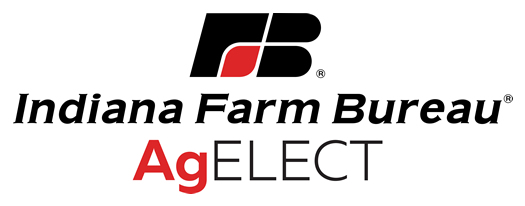Opening New Roads
Indiana Farm Bureau finds success in backing a law permitting interurban cars to haul livestock to the capital city and its terminal market.
The interurban car is a type of electric railway, a hybrid between a streetcar and a train.
Although livestock was already coming to market by railroad and truck, this law lowers freight costs and allows more movement by farmers
Batting 1000
Every bill sponsored by Indiana Farm Bureau passes in the legislative session, while every bill opposed is defeated.
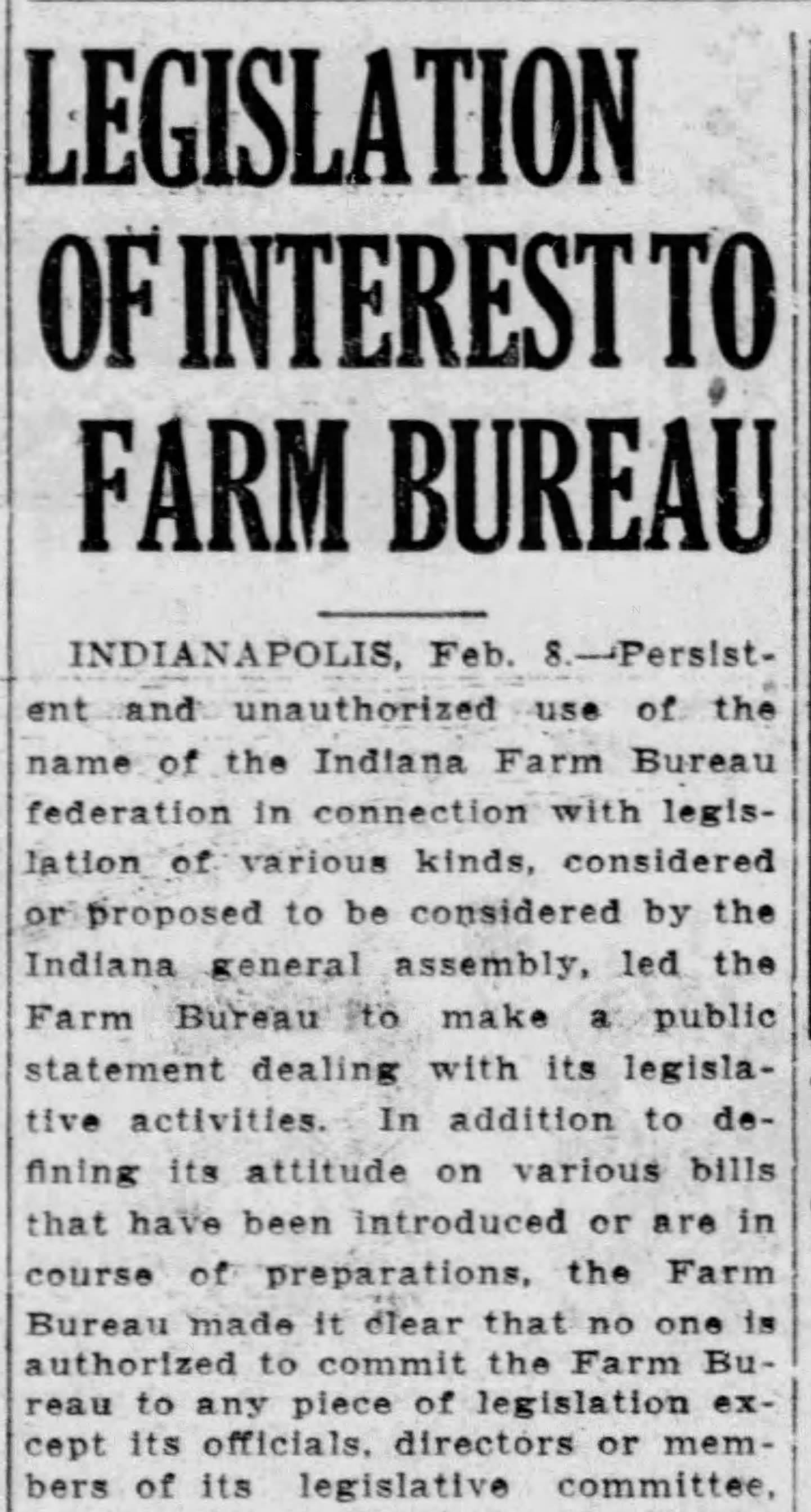
Relief for Farmers
A tax limitation law passes in the Statehouse.
In the depths of the Great Depression, more relief is needed from property tax. Forty thousand farmers, whose names appeared on a petition, ask the governor to call a special session to take action on their problem.
Action is taken by the legislators which set a $1.50 tax levy limit per $100 of taxable property. The rate, however, is controlled by the county boards and often exceeded this maximum.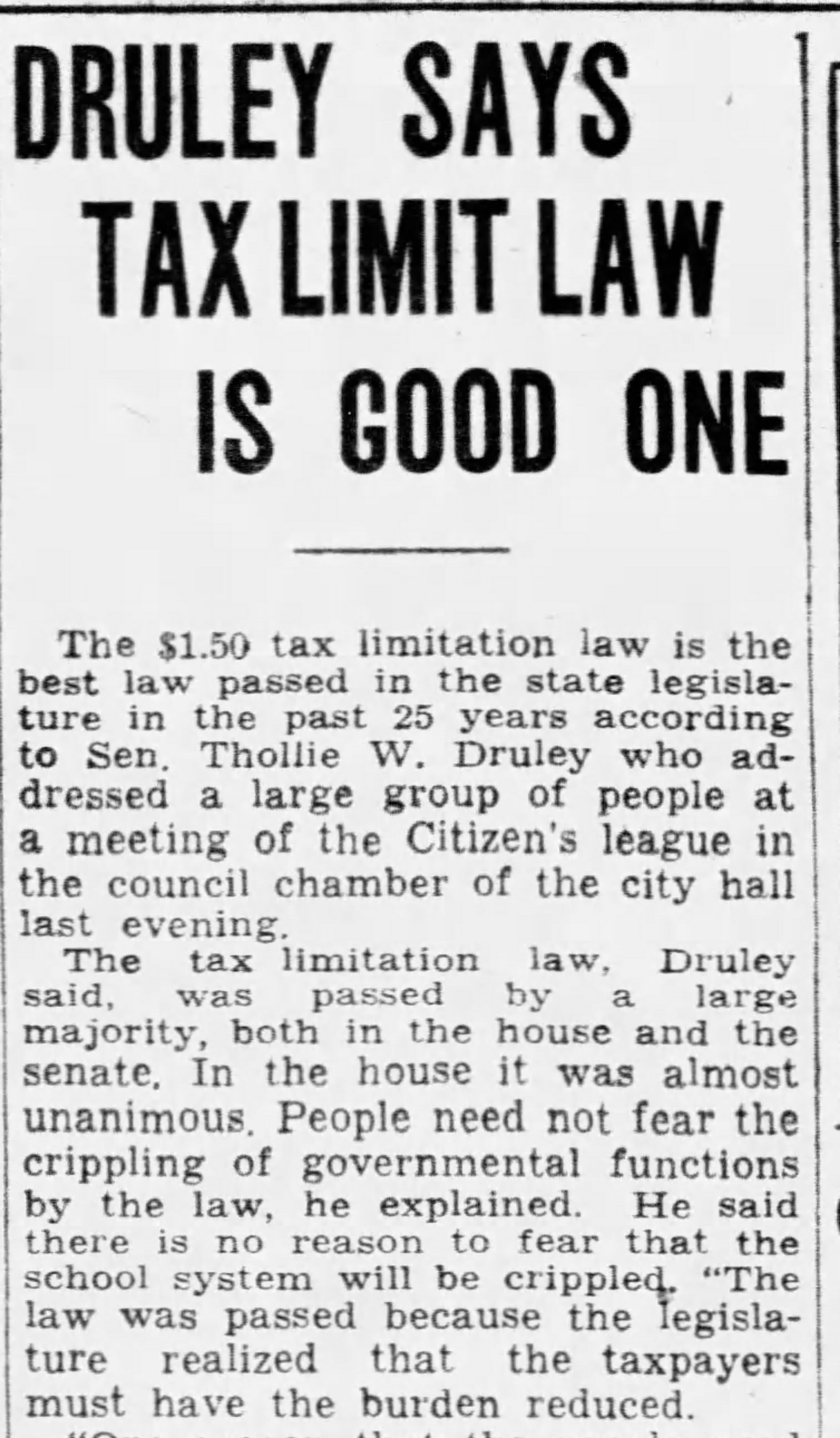
Strong Statehouse Showing
Because of Indiana Farm Bureau’s bill, the original bi-partisan proposal is completely redrafted, the unpopular sales tax features are minimized, and is renamed the “gross income tax bill” from “Indiana Plan.” The new rate is set to 0.25 percent for agriculture.
More than 10,000 farmers gather at the Statehouse to urge the passage of the law.Let There Be Light
The law is drawn with the intention of furnishing electricity to farm homes at no profit, either through the erection of power plants or by the wholesome purchase of power from existing private utilities.
Following the passage of the law, the government began building 587 miles of lines of electric lines, assisting 66 state counties within the first year.
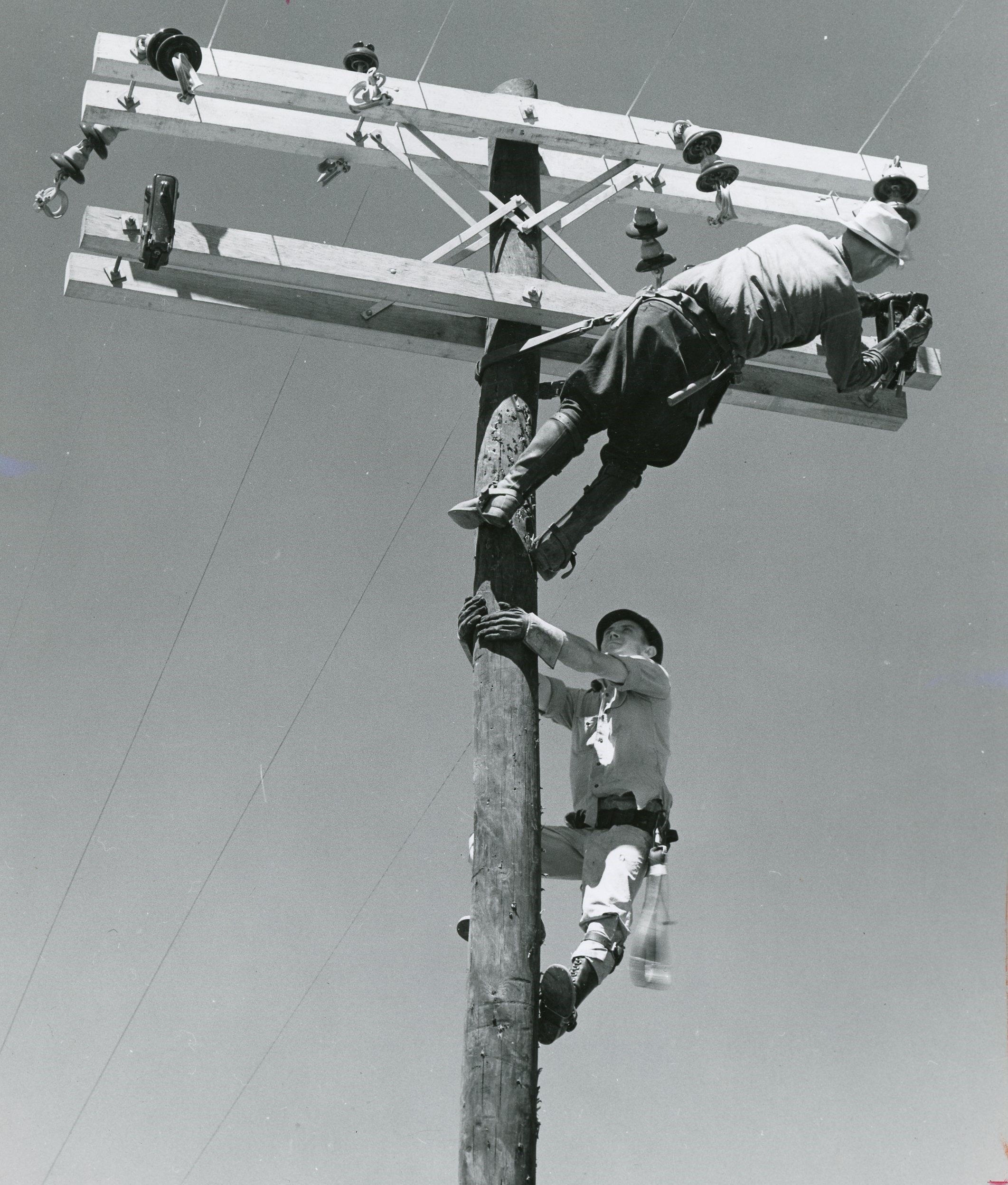
A Renewable Resource
The Agricultural Adjustment Act of 1938, or farm bill, is enacted by Congress.
The Farm Bill is a renewable five year law which governs over agricultural and food programs. Originally focused on farm commodity support, the bill has expanded to also cover nutrition assistance, conservation, horticulture and bioenergy programs.
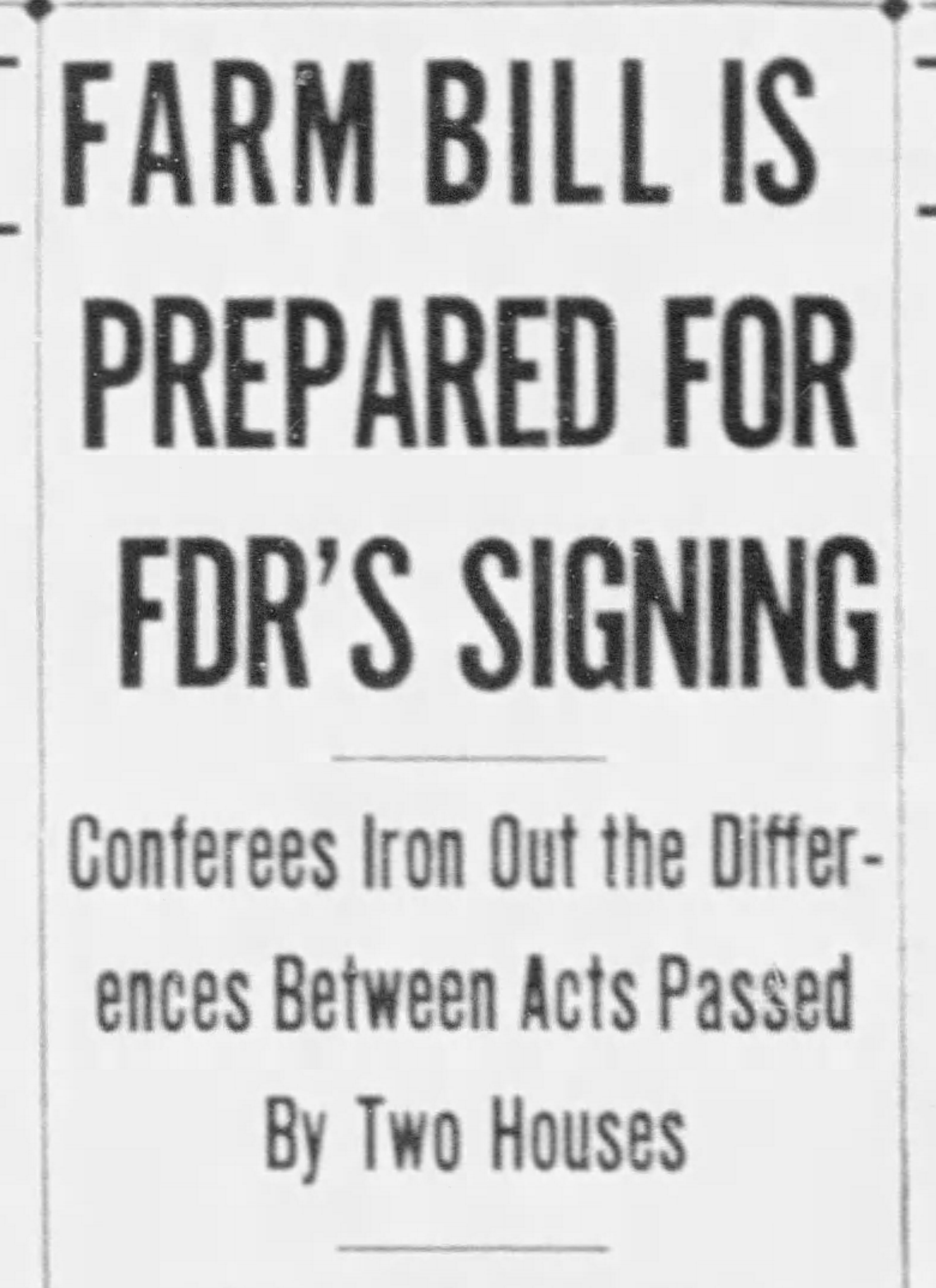
Rally Against Repeal
15,000 Indiana Farm Bureau members march to the Statehouse to successfully save the Gross Income Tax from repeal.
The Gross Income Tax is up for repeal following a push by retailers who found their taxes are too high. The Gross Income Tax is amended following this retail push, but was not repealed.
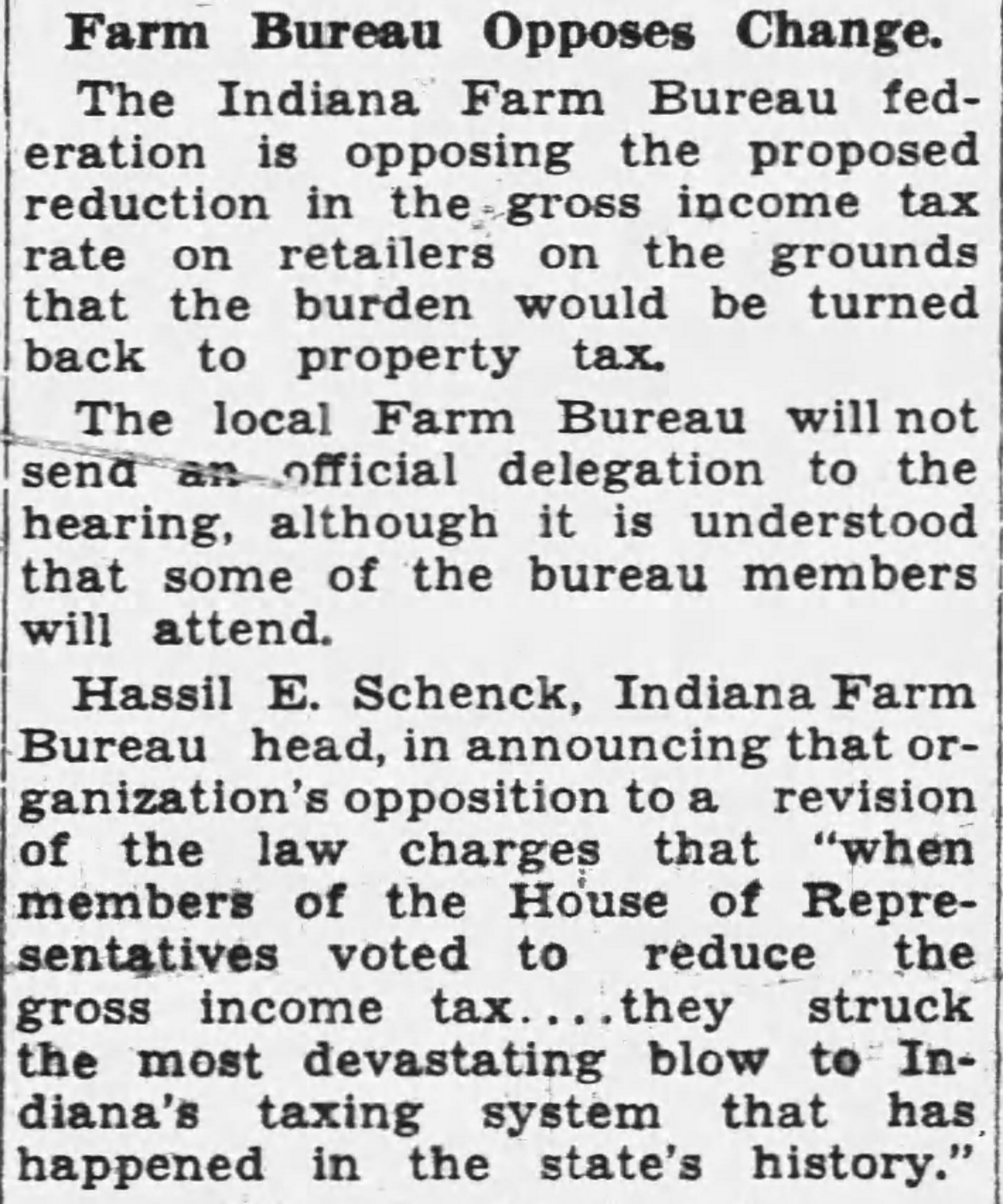
Coming Together
Indiana Farm Bureau recommends the consolidation of rural schools.
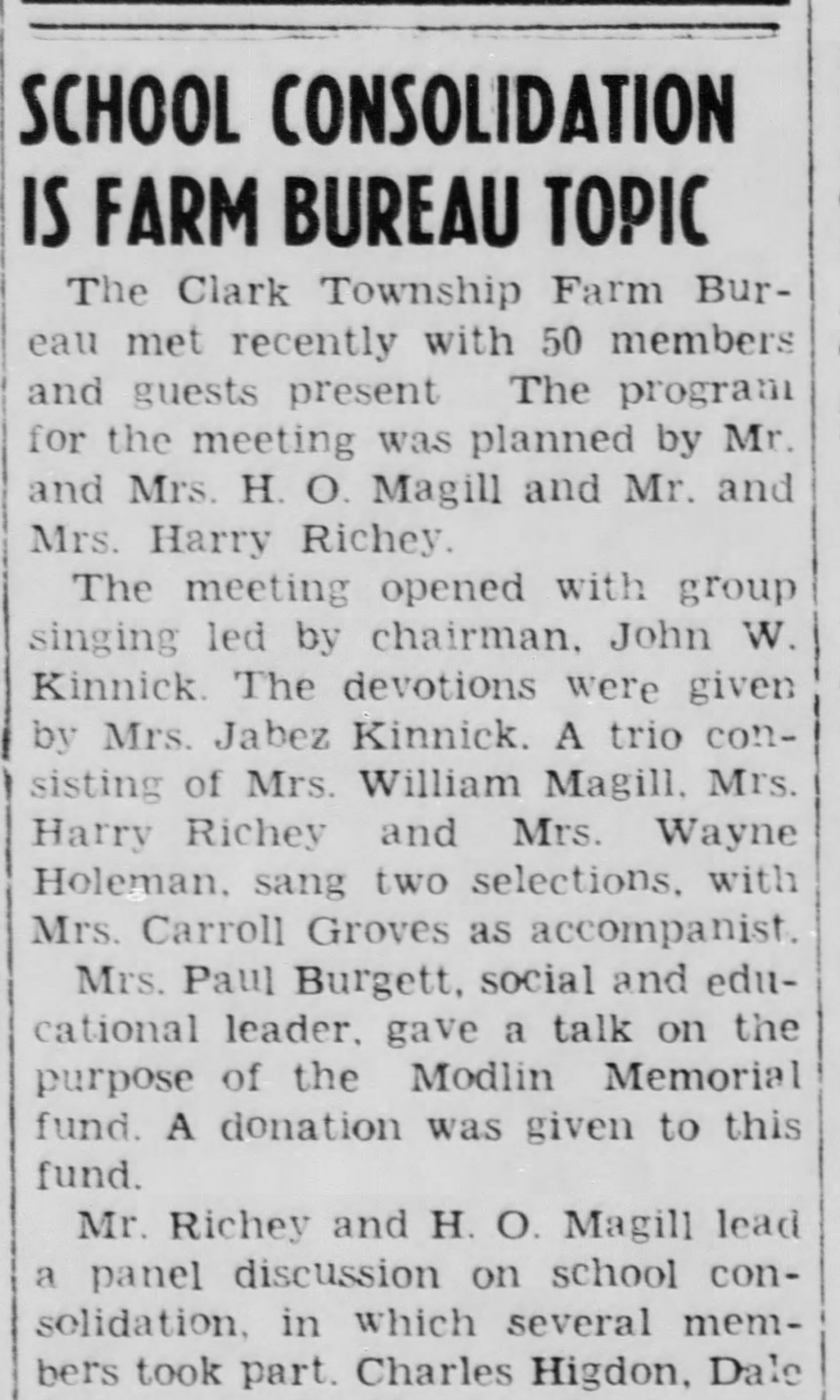
Future of Animal Health
Indiana Farm Bureau succeeds in getting a law passed which establishes a school of veterinary medicine at Purdue University.
This move is deemed necessary for adequate livestock care on Indiana farms and for overall public health.
Rules of the Road
Vehicle Safety Legislation passes in the Statehouse.
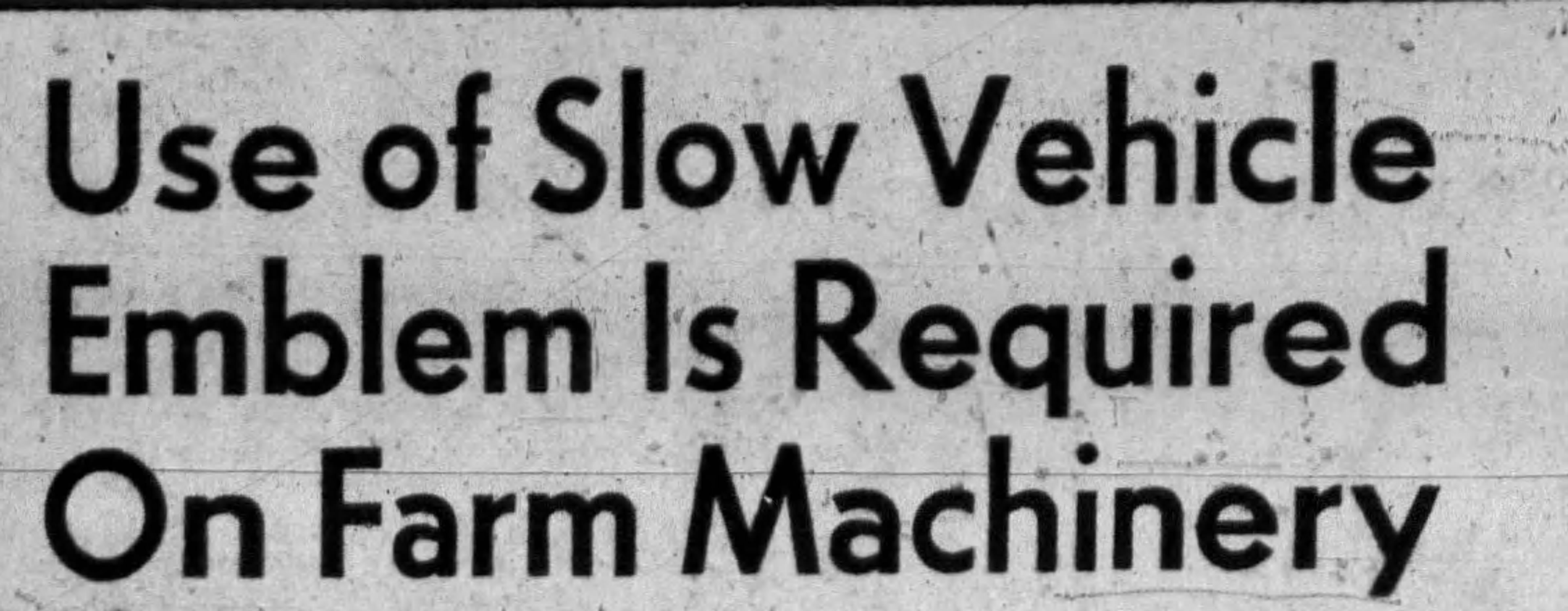
The Reformation
Governor Bowen presents his tax package at the Statehouse.
Property tax reform in Indiana can be traced back to this tax reform package, which is passed in response to increasing local property tax rates and levies. The reform limits local governments’ ability to increase property tax levies, sets up alternate funding mechanisms for local government, and shifts some of the responsibility for revenue generation to the state. Indiana Farm Bureau supports the governor’s tax package to allow land reassessments at six-year intervals.
Counties can adopt the county adjusted gross income tax (CAGIT) if they want more property tax relief than the new state program delivered.
Successful Opposition
Land Use Planning Act of 1973 fails in the US House of Representatives.
Farm Bureau had vigorously opposed the bill, saying that it contained too much federal control of state land use planning. The farm organization favors grants-in-aid to states for this purpose, and is opposed to federal "strings" attached to the money.
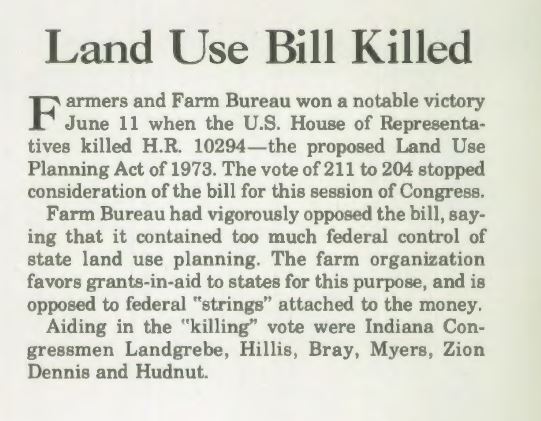
The Right to Farm
The Indiana Right to Farm Statute is enacted following push by Indiana Farm Bureau.
A Voice for Farmers
Indiana Farm Bureau establishes a political action committee, or PAC: “Indiana Farm Bureau ELECT.”
The PAC has three distinct goals: member involvement, policy implementation and member clout and influence. ELECT enhances member involvement through political education and grassroots decision making.
Protecting Farm Land
Nonconforming Uses of Agricultural Land passes in Congress.
The existence of this law means that a county or municipality may not use its planning or zoning process to interfere with existing agricultural operations.
This bill protects farmers faced with development creeping in around them, where the new neighbors were offended by agricultural operations, such as farm machinery on the roads or the normal odor of livestock production.
A Department of Its Own
Indiana State Department of Agriculture is created following a request from Indiana Farm Bureau.
Indiana Farm Bureau believes a department of agriculture will streamline government by integrating state programs that are currently scattered among many different agencies.
Major responsibilities of the department include: advocacy for Indiana agriculture at the local, state and federal level; managing soil conservation programs; promoting economic development and agricultural innovation; serving as a regulatory ombudsman for agricultural businesses; and licensing grain firms throughout the state.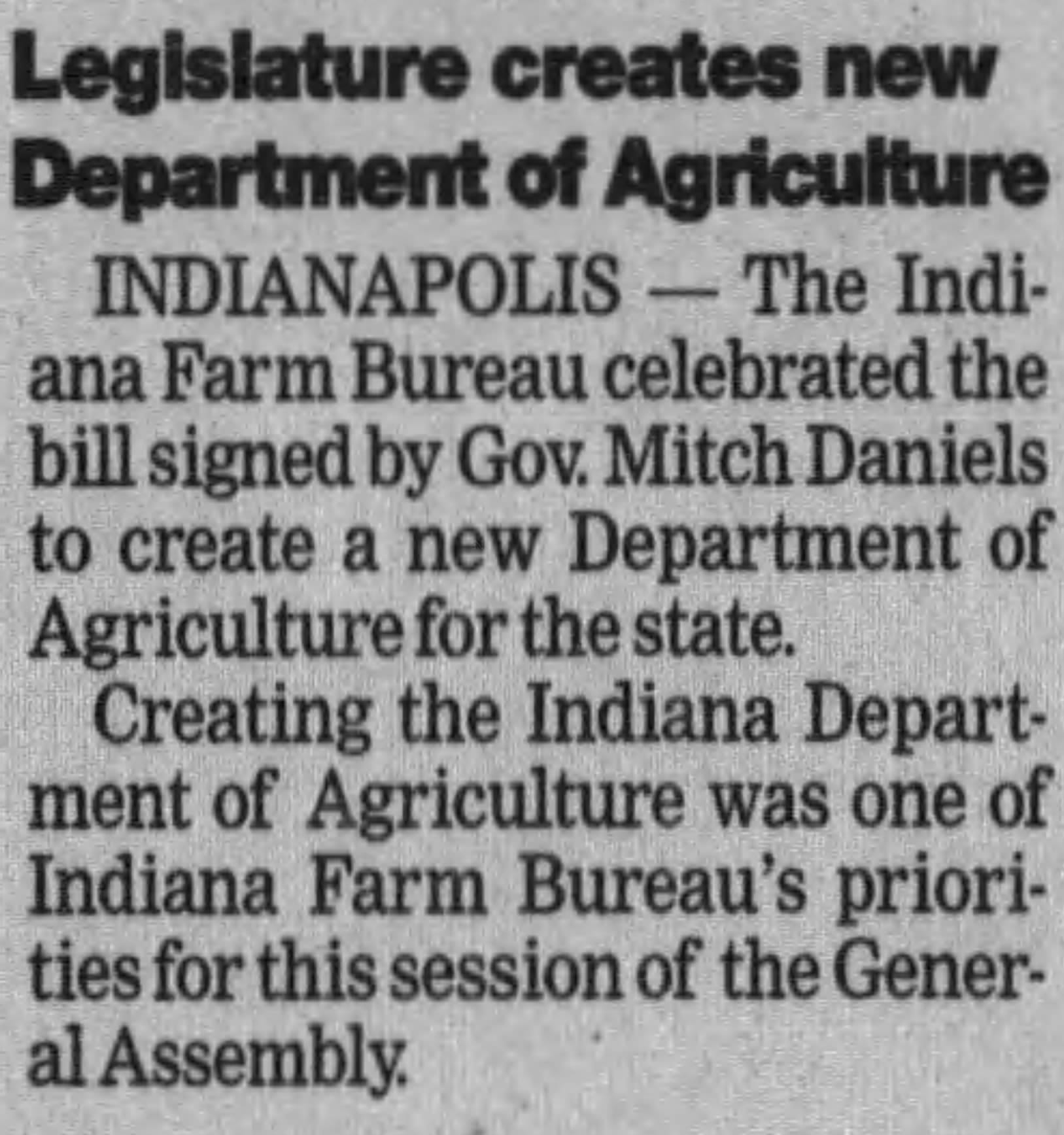
Ag Support in Court
Throughout its existence, INAgLaw has effectively promoted a better understanding of legal issues facing Indiana agriculture through educational programming and support of precedent-setting litigation. INAgLaw also is instrumental in creating the agricultural law section of the Indiana State Bar Association.
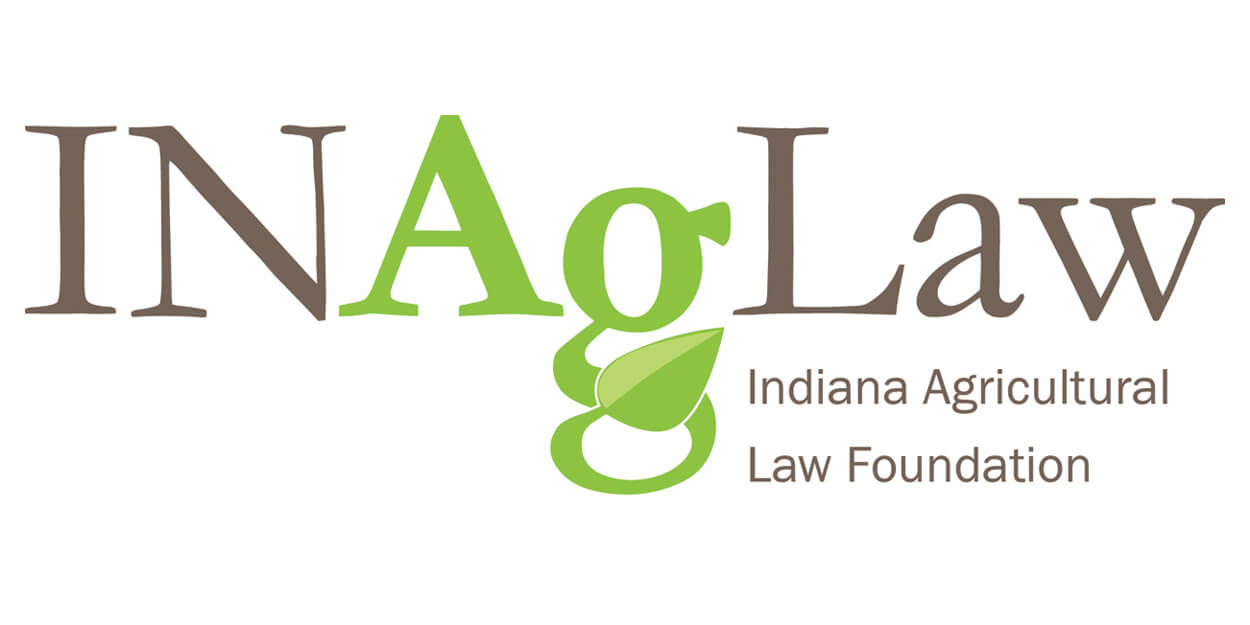
Relief for Farmers
Following a push by Indiana Farm Bureau, Senate Bill 308 passes in the Indiana Statehouse.
Indiana Farm Bureau supports the bill as it provides significant relief and savings for farmland owners including: a base value match, statutory cap rates between six and eight percent, and freezing soil productivity factors.
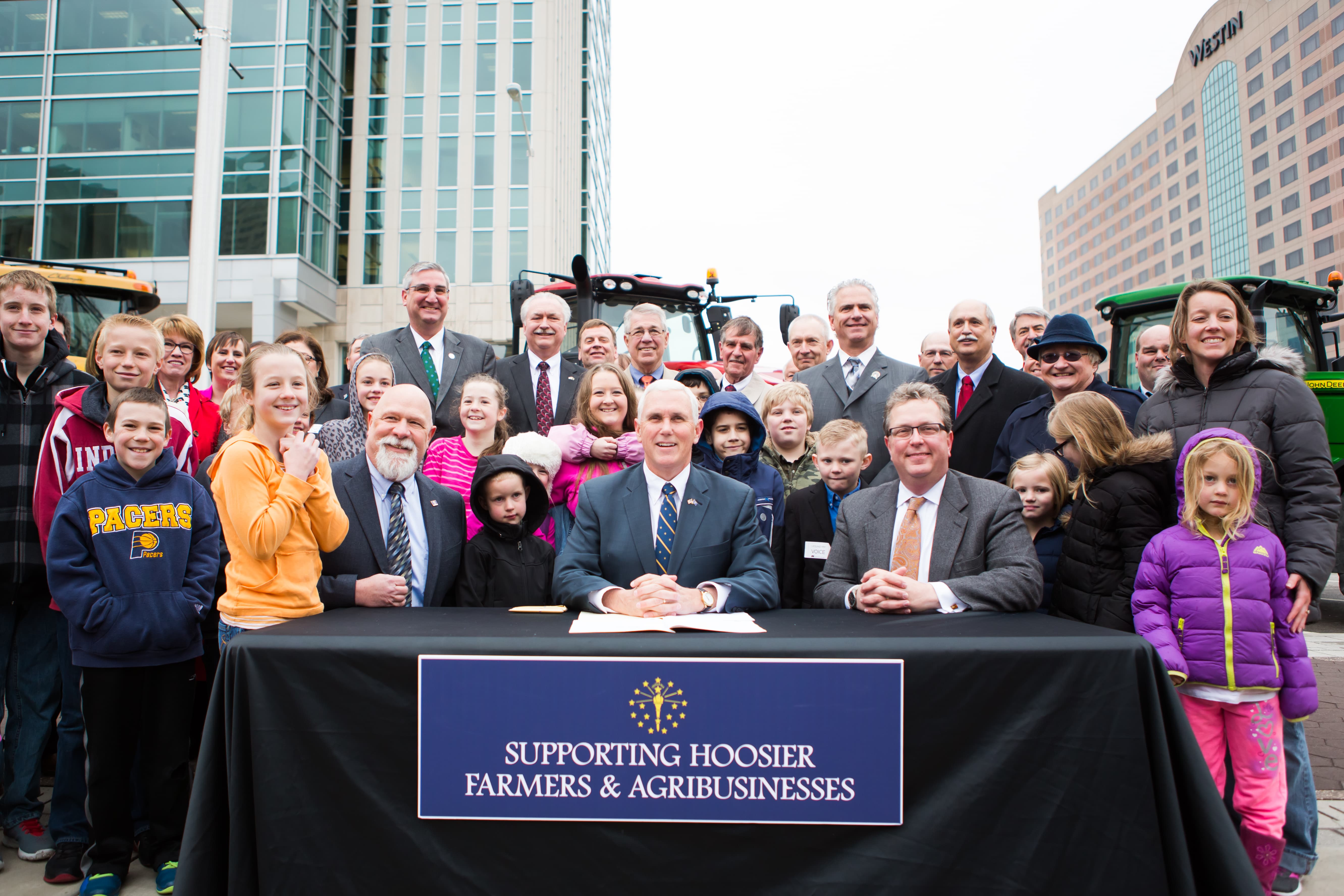
State Voice
Indiana Farm Bureau establishes their state political action committee, AgELECT.
AgELECT is the state PAC of Indiana Farm Bureau. AgELECT may only contribute to state level candidates in Indiana, and it is primarily focused on supporting state Senate candidates, state House of Representative candidates and state legislative caucus events.
AgELECT is created to provide fundraising flexibility to Indiana Farm Bureau by expanding the universe of potential donors beyond Farm Bureau’s membership or restricted class. By increasing fundraising potential, AgELECT will increase the capacity to grow Indiana Farm Bureau’s political clout.
